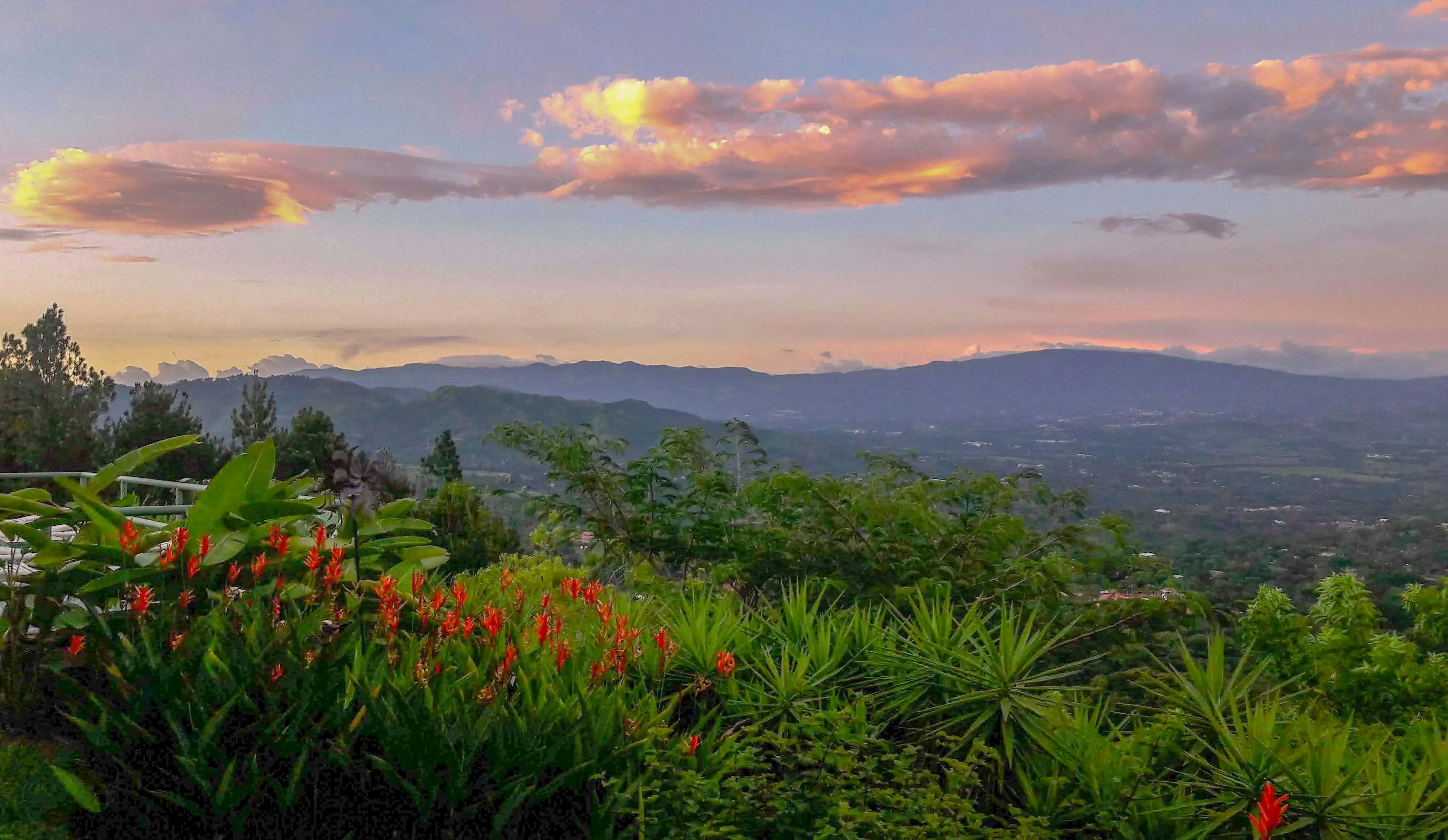Population: 4,930,258 (July 2017 est.)
Area: 19,730 square miles (51,100 square kilometers). Slightly smaller than West Virginia.
Capital City: San José
Time Zone: UTC-6 (1 hour behind Washington, DC during Standard Time)
Location: Costa Rica is in Central America, bordering both the Caribbean Sea and the North Pacific Ocean, between Nicaragua and Panama.
Popular Expat Regions: Tamarindo, Orosi, Lake Arenal
Property: There are no restrictions on foreign property ownership in Costa Rica. However, no one (native or expat) is permitted to own property within 50 meters of the ocean.
Renting: Real estate agents in Costa Rica often offer rental properties, as do some property management companies. Real estate websites will list numerous rental properties, but these will usually be short-term leases.
Healthcare: By almost any standard, Costa Rica has some of the best healthcare in Latin America. Not only that, but the country’s public and private health systems are constantly being upgraded—new hospitals, new equipment, and improvements in staff training.
Climate: Costa Rica has two types of climate, tropical and subtropical. Its dry season runs from December to April, while rainy season runs from May to November. Temperatures are generally cooler in highlands.
Currency: The legal tender is the Costa Rican Colón. US$1 = 569 Costa Rican colónes (CRC).
Language: Spanish is the official language of Costa Rica, while English is commonly spoken in many areas.
System of Government: Costa Rica is a democratic republic, headed by a publicly-elected president. The country’s Legislative Assembly consists of 57 publicly-elected representatives. Election cycles run for four years, and any citizens over the age of 18 are able to vote.
Head of State and Government: President Luis Guillermo Solís Rivera (since 8 May 2014). The presidential term lasts for four years. Costa Rica elects two candidates to the position of Vice President. The current Vice Presidents are Mr. Helio Fallas Venegas and Ms. Ana Elena Chacón Echeverría.
Telephone Country Code: 506
Internet Country Code: .cr
Emergency Numbers: For police, medical, or fire services, dial 911 or 112
Religion: Roman Catholic accounts for the largest religious presence in Costa Rica, at 76.3% of the population. Other common religions include Evangelical (13.7%), Jehovah’s Witnesses (1.3%), other Protestant (0.7%), while 4.8% of people identify with other world religions and 3.2% identify with none.
Life Expectancy at Birth: 78.6 years (Male = 75.9; Female = 81.4)
Exports: $9.824 billion
Imports: $14.76 billion
Gross Domestic Product (Purchasing Power Parity): $79.26 billion
GDP per Capita: $16,100
Inflation Rate: 0.3%
Source: CIA The World Factbook
Costa Rica Facts to Tell Your Friends
Tico or tica for females, is a term Costa Ricans use to refer to themselves – this is someone who was born in Costa Rica. The term Tiquicia, also the name of a popular authentic restaurant in San Jose, is used to describe something that is “very Tico,” in other words, highly authentic and unique or special to Costa Rica and its people.
Soda is a term for a small restaurant where you can buy local cuisine, like the typical casado plate, and usually very inexpensively. And if you’re walking on the beach and hear a vendor yelling “pipa, pipa!” you should stop them…they’re selling delicious, fresh coconuts.
Pura Vida is the country’s unofficial motto. Directly translated as “pure life,” this expression is more akin to the “Life Is Good” t-shirts and bumper stickers you see for sale in North America. Pura Vida sums up the attitude Costa Ricans have about life. They value time with family and friends. They work to live, not live to work. They’re happy to live in a beautiful tropical country!
Pura Vida is also an everyday phrase. It can replace “hello,” “good-bye,” “thank you,” and “your welcome” for starters. If someone asks how you’re doing – you can answer with a hearty Pura Vida! – I’m doing great!
Officially, citizens of Costa Rica are costarricenses. But that’s really only used in news reports or in formal documents or situations. The nickname tico, for a man, or tica, for a woman, is more common. There’s some dispute over this, but some say it comes from the habit of Costa Ricans to attach the suffix “-tico” to words to denote that they are small. It’s also a term of affection.
Costa Rica has had no army since 1948. It was abolished at the end of a civil war in that year. The army ban is enshrined in the constitution, with the money going to education, culture, and other areas. Costa Rica has been a stable, peaceful, and democratic country since then.
With just 0.03% of the world’s landmass but 5% of its animal species – more than half a million in all, Costa Rica is one of the most biodiverse places on the planet. Its position between North and South America and the variety of climates and environments in the country, from beaches to rain forests to cloud forests to wetlands and more, makes this biodiversity possible. Of those many species around 300,000 are insects.
The government and private individuals have shown a true commitment to conservation and wildlife preservation. A quarter of the land in the country is set aside and national park or private reserve.
Costa Rica aims to be carbon neutral by 2021 – the first country to do so. It already generates 93% of its energy through renewable sources like geothermal, wind, and hydroelectric.
Get Your Free Costa Rica Report Here
Get Your Free Costa Rica Report Here
Learn more about Costa Rica and other countries in our daily postcard e-letter. Simply enter your email address below and we’ll send you a FREE REPORT - Explore the Old World in Laidback Costa Rica.

By submitting your email address, you will receive a free subscription to IL Postcards and special offers from International Living and our affiliates. You can unsubscribe at any time, and we encourage you to read more about our Privacy Policy.















